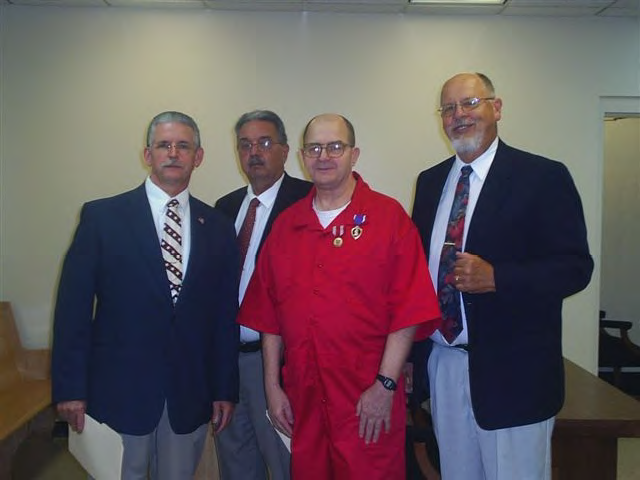
James Davis survived a shrapnel wound in Vietnam, but he never recovered from the psychological wounds he suffered during two brutal combat tours — which were compounded by severe childhood abuse and mental illness. Psychiatrists have now diagnosed him with paranoid schizophrenia and combat-related PTSD, but the jury at his trial heard almost no evidence of his severe mental illness.
In 1995, James walked into an Asheville tool manufacturing plant, from which he had been fired a few days earlier, and killed three employees: Gerald Allman, Frank Knox and Tony Balogh. By the time of the murders, everyone who knew James believed he was seriously mentally ill. In the years before his crime, he lived in almost complete isolation, talked to himself, and shot at imaginary groundhogs in his yard. On the day of the shooting, investigators who interviewed him after he turned himself in said James appeared to be hearing voices and hallucinating. At his trial, he had to be so heavily medicated that his speech was slurred and he could not hold a coherent conversation.
As a child, James’ alcoholic father whipped him with a leather strap until he bled and beat James with a mop handle if he spoke at the dinner table. The father sexually abused his children and often threatened to kill them while they slept. At 15, James was placed in foster care. He never received treatment for symptoms of mental illness that plagued him for most of his life, nor did he receive mental health treatment after seeing near-constant combat during two tours in Vietnam. In 2009, he received a belated Purple Heart for his service in Vietnam.
At a separate civil trial, in which the families of James’ victims sued his former employer for failing to protect them from James, more than a dozen witnesses provided compelling evidence of James’ mental illness, none of which had been revealed at his criminal trial. The families won one of the largest civil settlements in North Carolina history. Since being sentenced to death, James’ paranoia and depression have continued to worsen. At one point, he fired his attorneys and asked to be executed, saying that continuing with appeals lead to increased paranoia and voices in his head.


